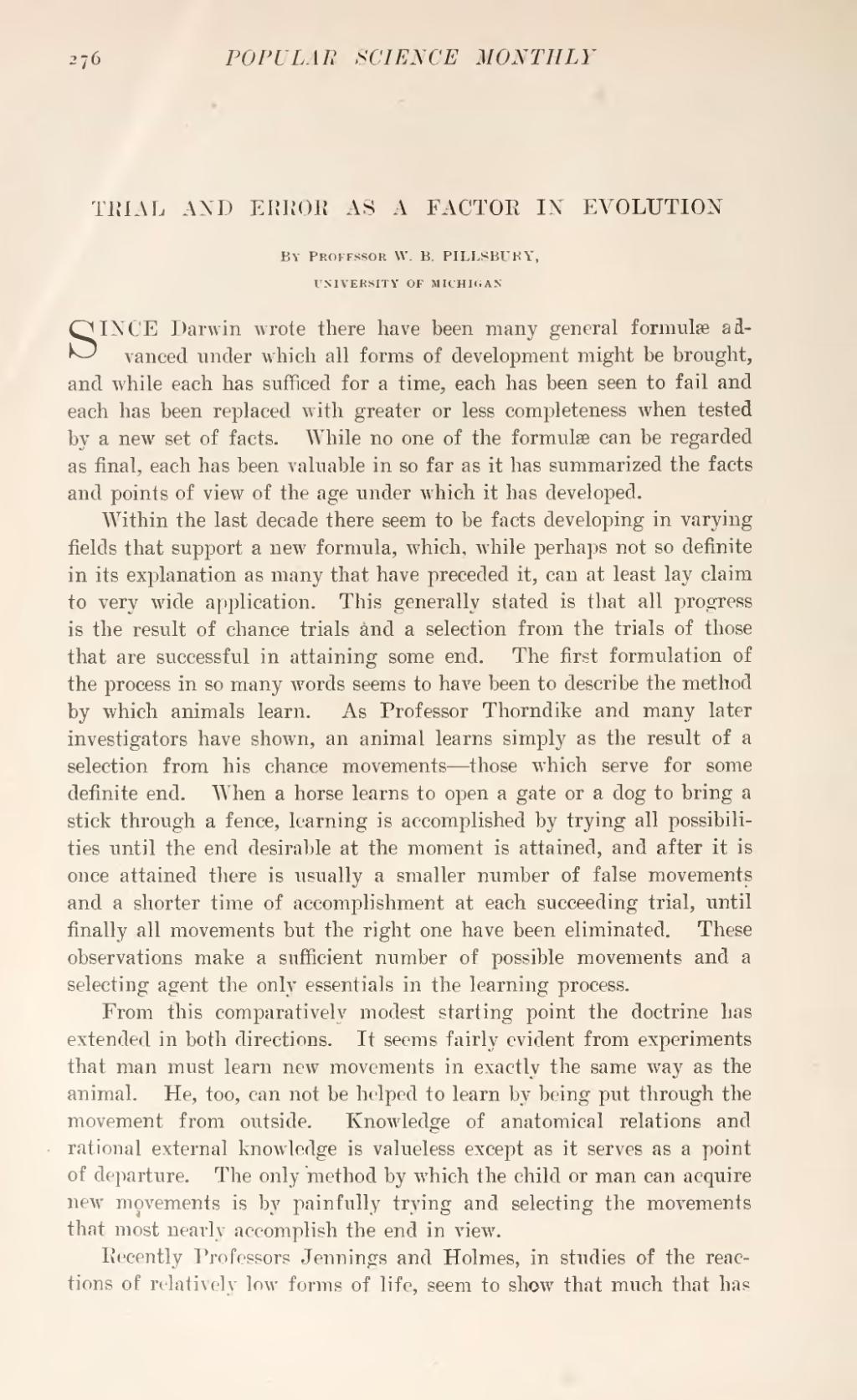| TRIAL AND ERROR AS A FACTOR IN EVOLUTION |
By Professor W. B. PILLSBURY,
UNIVERSITY OF MICHIGAN
SINCE Darwin wrote there have been many general formulæ advanced under which all forms of development might be brought, and while each has sufficed for a time, each has been seen to fail and each has been replaced with greater or less completeness when tested by a new set of facts. While no one of the formulae can be regarded as final, each has been valuable in so far as it has summarized the facts and points of view of the age under which it has developed.
Within the last decade there seem to be facts developing in varying fields that support a new formula, which, while perhaps not so definite in its explanation as many that have preceded it, can at least lay claim to very wide application. This generally stated is that all progress is the result of chance trials and a selection from the trials of those that are successful in attaining some end. The first formulation of the process in so many words seems to have been to describe the method by which animals learn. As Professor Thorndike and many later investigators have shown, an animal learns simply as the result of a selection from his chance movements—those which serve for some definite end. When a horse learns to open a gate or a dog to bring a stick through a fence, learning is accomplished by trying all possibilities until the end desirable at the moment is attained, and after it is once attained there is usually a smaller number of false movements and a shorter time of accomplishment at each succeeding trial, until finally all movements but the right one have been eliminated. These observations make a sufficient number of possible movements and a selecting agent the only essentials in the learning process.
From this comparatively modest starting point the doctrine has extended in both directions. It seems fairly evident from experiments that man must learn new movements in exactly the same way as the animal. He, too, can not be helped to learn by being put through the movement from outside. Knowledge of anatomical relations and rational external knowledge is valueless except as it serves as a point of departure. The only method by which the child or man can acquire new movements is by painfully trying and selecting the movements that most nearly accomplish the end in view.
Recently Professors Jennings and Holmes, in studies of the reactions of relatively low forms of life, seem to show that much that has

